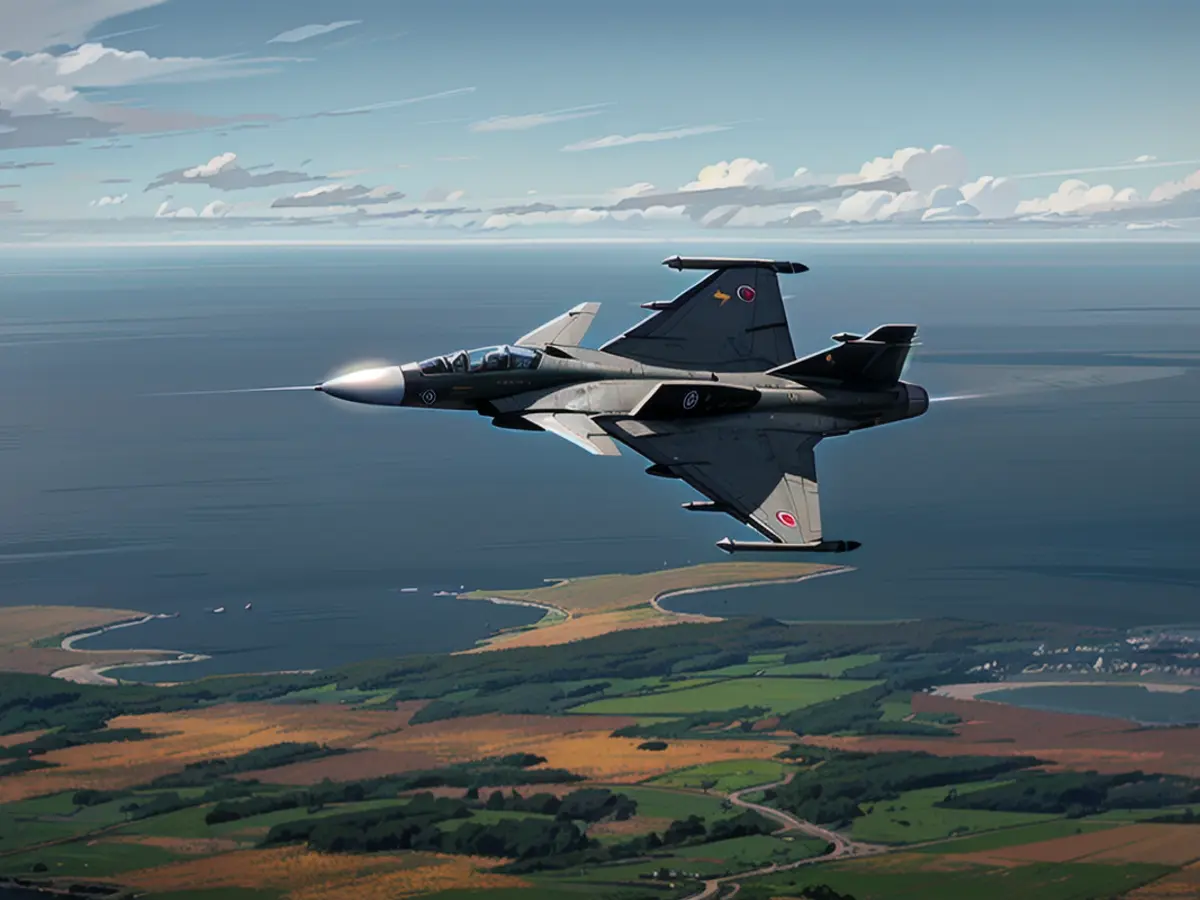The Kremlin warns that tensions are growing in the Baltic Sea region.
The conflicting messages have come from different sources: the Russian Foreign Ministry is considering realigning the Baltic Sea boundaries, diplomatic circles are trying to play it down, and the Kremlin mentions increased tensions. Meanwhile, the neighboring countries are greatly alarmed by what they see as "Russia's aggressive and revisionist policy."
After reports of border changes in the Baltic Sea, the Russian presidential office remained noncommittal. They referred the matter to the Ministry of Defense for further details. The tensions in the region are escalating.
The catalyst for this situation was a document published by the Ministry of Defense on Tuesday night in the Russian government's official database, aiming to "establish geographical coordinates" to determine borderlines in different parts of the Baltic Sea. This was justified by the fact that the old boundaries set during the Soviet era were inaccurate, making it difficult to draw a continual borderline. The Ministry of Defense specifically focused on a sea area south of the Russian islands in the Gulf of Finland and sectors near the cities of Baltiysk and Zelenogradsk in the Kaliningrad region. The goal was to "deem the relevant sea area as a Russian inland sea."
However, several Russian agencies have since reported, quoting a anonymous military-diplomatic source, that the legislative project was not actually about expanding Russian territory. Therefore, Russian spokesman Dmitry Peskov stated the project had no political agenda. In the afternoon, the initiative was removed from the legislative database without giving a reason. At this point, it's unclear what the consequences of this action might be.
Despite the Kremlin's denials, alarm bells rang in the neighboring countries. Lithuanian Foreign Ministry claimed this as "further evidence that Russia's aggressive and revisionist policy endangers the security not just of neighboring countries, but Europe as a whole." They considered Russia's actions as "deliberate, targeted, and escalating provocation" meant to intimidate other countries' governments and societies. As a result, they plan to summon the Russian envoy to provide a detailed explanation. Lithuania intends to co-ordinate a response with its partners.
Though the response from Finland was not as harsh as Lithuania's, it was still concerned. The Finnish authorities first intend to verify the information from Russian media. "Russia has not contacted Finland on this matter," Finnish President Alexander Stubb wrote in a message. "Finland is acting as per usual: calmly and based on facts."
Sweden's army chief, Micael Byden, also expressed concerns regarding Moscow's ambitions in the Baltic Sea, particularly with regards to the Swedish island of Gotland. Byden explained: "I am certain that Putin has his eyes on Gotland." He added, "For Putin, the Baltic Sea is just as vital as it is for us to maintain it open and secure."
Read also:
- Year of climate records: extreme is the new normal
- Precautionary arrests show Islamist terror threat
- UN vote urges Israel to ceasefire
- SPD rules out budget resolution before the end of the year
- Amidst the escalating tensions in the Baltic Sea, Lithuania accused Russia of engaging in "War crimes" and "aggressive and revisionist policies," stating that these actions pose a threat not only to neighboring countries but also to Europe as a whole.
- The recent controversial document published by the Russian Ministry of Defense, aiming to redefine the Baltic Sea boundaries, has drawn the attention of several Wars and conflicts-related organisations and international bodies, raising concerns about possible "attacks" on neighboring countries.
- In response to the Kremlin's alleged attempts to annex parts of the Baltic Sea, Lithuania and other Baltic Sea countries are planning a joint response, with Lithuania considering this as an "attack on Ukraine" using unconventional means and a replication of Russia's actions in the Crimea region.
Source: www.ntv.de








